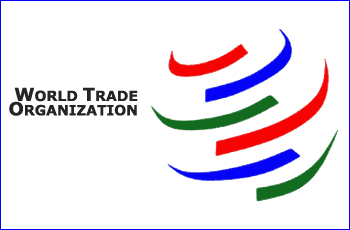 The EU and other US trading partners have begun laying the groundwork for a legal challenge to a US border tax proposal in a move that could trigger the biggest case in World Trade Organisation history.
The EU and other US trading partners have begun laying the groundwork for a legal challenge to a US border tax proposal in a move that could trigger the biggest case in World Trade Organisation history.
The preliminary moves come as Republicans in Congress are working to convince President Donald Trump to back a major shake-up of the US corporate tax system that would include a new “border adjustment” system. It would see US imports subject to tax and export revenues exempted.
Were the US to adopt the mechanism, it would represent the biggest shake-up in the global corporate tax system in almost a century, according to tax experts.
Members of the WTO and trade experts warn that if the US makes the tax change, it would lead to a major challenge to the global trading system at a time when its most influential member is tilting toward protectionism under Mr Trump.
Jyrki Katainen, the European Commission vice-president who oversees EU trade policy, told the Financial Times that Europe wanted to avoid a trade war with the US as that would be “disastrous” for the world economy.
But he made clear the EU would be willing to act against the US whether it was related to a border tax proposal or the erection of other arbitrary trade barriers.
“If somebody is behaving against our interests or against international rules in trade then we have our own mechanisms to react,” Mr Katainen said. “We have all the legal arrangements within EU, but we are also part of global arrangements like the WTO and we want to respect the global rule base when it comes to trade.”
A defeat in a border tax case could open the door to some $385bn a year in trade retaliation against the US, according to Chad Bown, an expert on WTO trade disputes at the Peterson Institute for International Economics.
That would be almost 100 times greater than the largest WTO finding to date. Should the US ignore a WTO ruling, as Mr Trump has threatened in the past, it could lead to the unravelling of the international system designed to prevent trade wars.
“The issue here is just orders of magnitude larger than what the WTO dispute settlement process typically is asked to manage in terms of trade frictions,” said Mr Bown.
The proposal has already set off a major lobbying battle domestically, pitting import-dependent American companies such as Walmart and major exporters such as General Electric. But the EU and other US trading partners are also worried about the impact on their exports and have been deploying lawyers with a view to eventually challenging it before the global trade watchdog.
“Our first assessment is that it is definitely not going to be compatible with the WTO,” said a senior trade official in Geneva, where the WTO is based. “On the sides of many [US] trading partners there are serious doubts about whether or not it can be made WTO compatible.”
Mr Trump has yet to endorse the tax idea, which is being pushed by Paul Ryan, the speaker of the House of Representatives, and Kevin Brady, chairman of the House’s tax-writing ways and means committee.
But key advisers have praised it as a way of addressing what they see as the WTO’s unfair treatment of business taxes. US critics bristle at WTO rules that allow countries with VAT-based tax systems to offer rebates on exports while income-based systems such as the US’s cannot do the same.
“The unequal treatment of the US income tax system under biased WTO rules is a grossly unfair subsidy to foreigners exporting to the US and a backdoor tariff on American exports to the world that kills American jobs and drives American factories offshore,” Peter Navarro, the head of Mr Trump’s National Trade Council, said in a recent interview with the FT.
The corporate tax reform efforts are still at the early stages and the border proposal faces major political hurdles. Among the highest are Republicans in the Senate, who have cited WTO compliance as a red line.
Mr Brady said he wanted to make sure that any reforms abided by global trading rules. “We are designing this to be WTO compatible,” he told the FT.
But that is likely to be difficult, trade officials and experts argue, mainly because the Republican proposal is aimed at companies’ cash flow. WTO rules allow tax rebates when they are linked to products but do not when they are to income.
The proposal, officials and experts said, also appears to violate two fundamental WTO principles — that members are not allowed to discriminate against imports or subsidise their exports.
Jim Bacchus, a former US congressman who served as a top judge at the WTO, said the treatment of the US business tax system was Washington’s longest standing gripe with the WTO and the General Agreement on Tariffs and Trade that underpins it.
A US move to allow export rebates in the 1990s was challenged by the EU and struck down by the WTO after years of legal wrangling, prompting a scramble in Congress to rewrite tax rules.
The latest Republican proposal would rekindle that dispute and also risked other trade retaliation outside the WTO’s polite confines, said Mr Bacchus. “It will help no one for the US and other countries to engage in a whole slew of WTO cases and other retaliatory tit-for-tat actions over border tax adjustments,” he said.
The Financial Times

Leave a Reply
You must be logged in to post a comment.